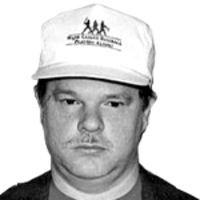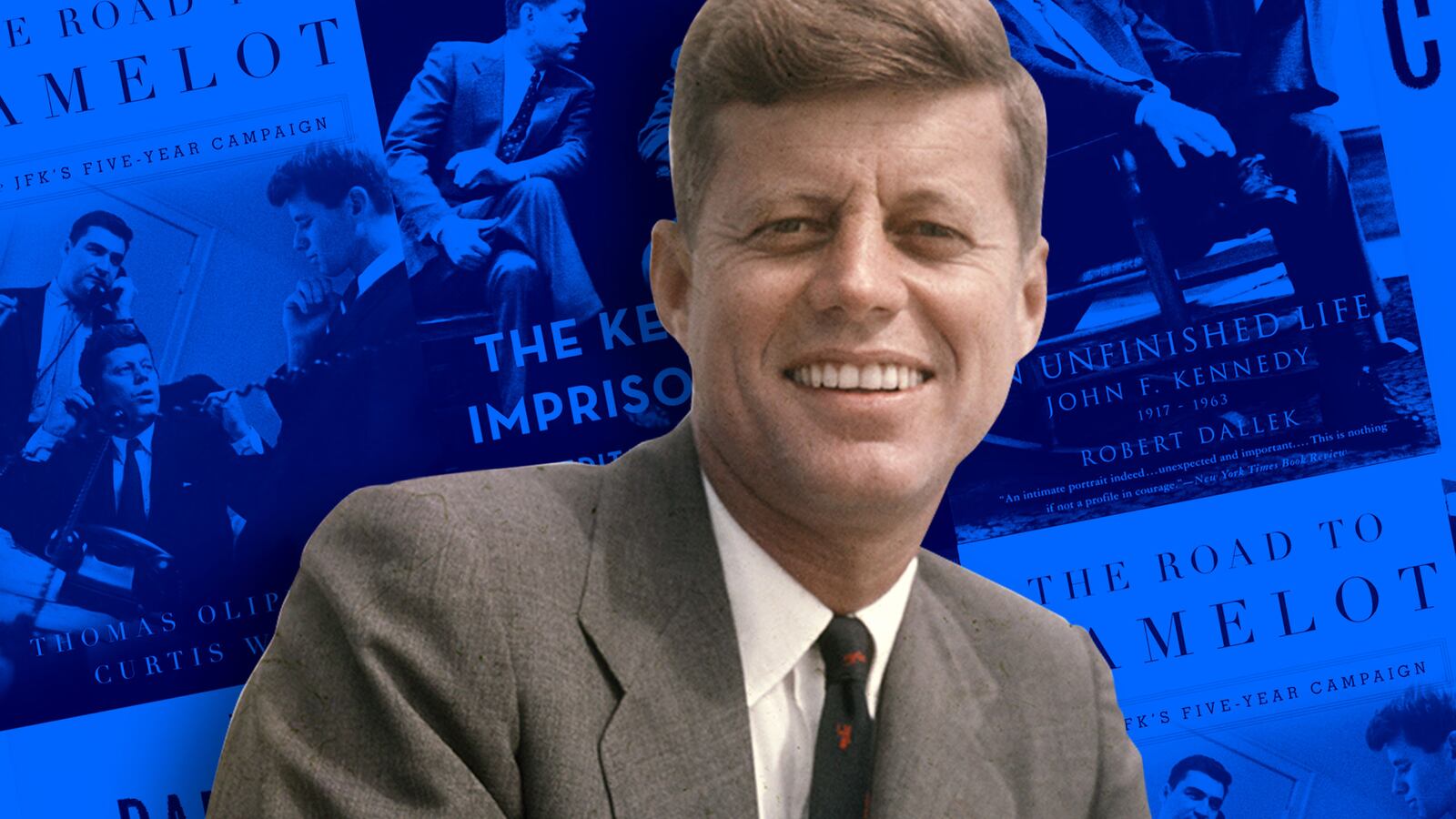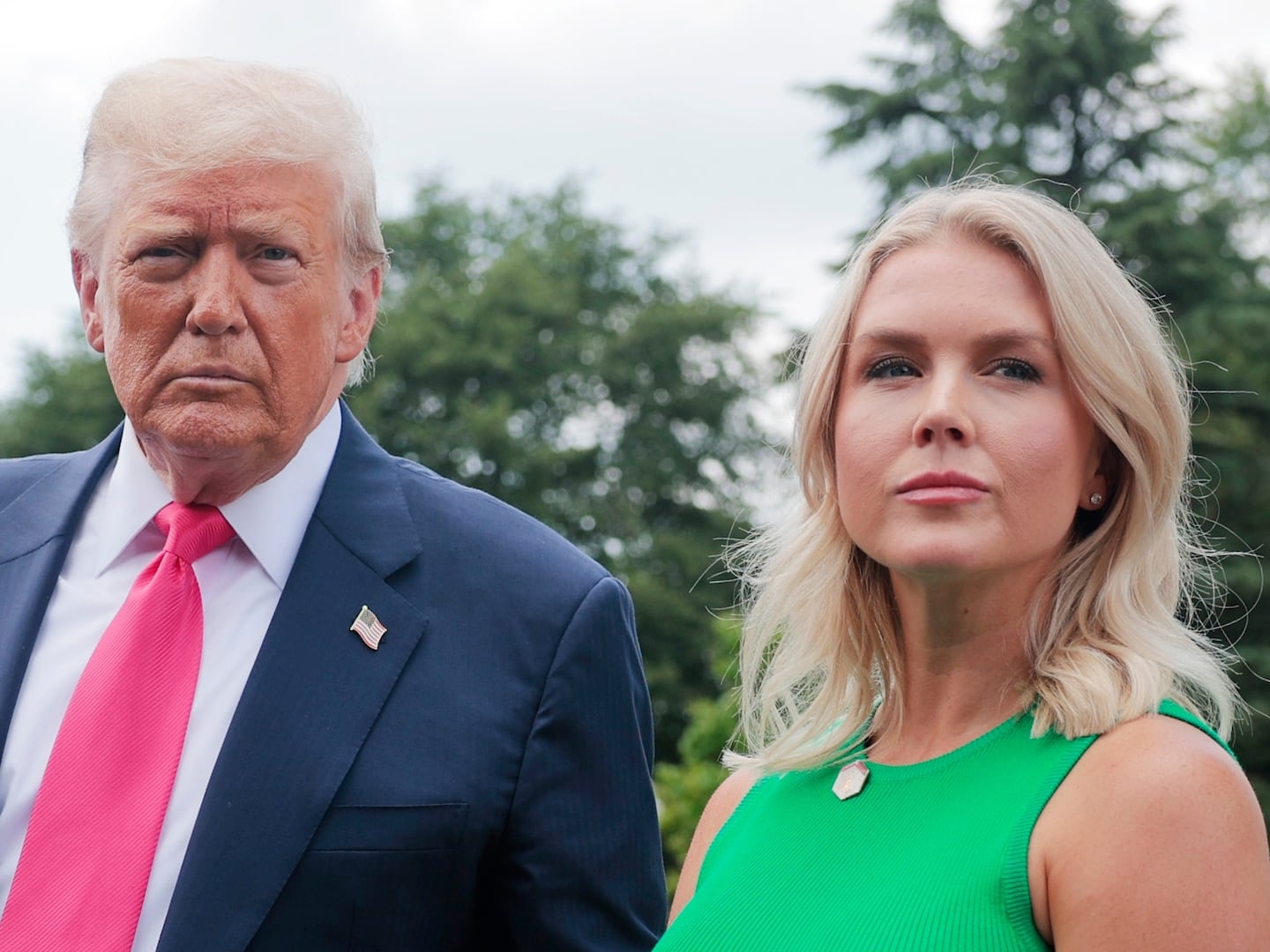Abraham Lincoln is our most written about president, but if he had only served for a thousand days, it’s doubtful that he could have inspired as many books as John F. Kennedy.
Much of what was written about JFK in the two decades after his death can be put under the heading of hagiography, written by people too close to the Kennedy family to be objective – “honorary Kennedys,” in the words of some critics, “bent on perpetuating the Kennedy legend.”
More recently historians and journalists have been able to focus on his strengths and deficiencies as a man and a president. Here are five by writers with no direct ties to the Kennedys that put JFK’s family, life and legacy into perspective.
The Kennedy saga begins with his father Joe, the subject of David Nasaw’s 2012 The Patriarch, an epic work of both biography and history that fills in the background of much that has been previously left to rumor and hearsay. Nasaw needs all of the book’s 800-plus pages to encompass the contradictions of a man who was, alternately, a tireless father, a public servant and a monster of ego.
Born in 1888 to Irish Catholic immigrants from whom he inherited a mentality but not faith, he was, Nasaw writes, “a man of boundless talents, magnetic charm, relentless energy and unbridled ambition” whose life was “punctuated by meteoric rises, catastrophic falls, and numerous rebirths, by cascading joys and blinding sorrows.”
Educated at Harvard, “He fought to open doors that were closed to him [as an Irish Catholic], then, having forced his way inside, refused to play by the rules.” Some of those rules were on Wall Street, which he played into a fortune before the age of 40. As the first chairman of Roosevelt’s Securities and Exchange Commission, he strove to regulate the market so others couldn’t make use of the same tricks and loop holes he had taken advantage of.
The Patriarch reveals a man whose vision in some matters was uncanny; he foresaw the Wall Street crash, getting out just in time, and invested heavily in the movie business when many others still thought moving pictures were a fad. (It was in Hollywood where he met his most famous mistress, Gloria Swanson.) Other decisions were breathtakingly wrong. As ambassador to the United Kingdom he believed that a Nazi victory was inevitable and that“democracy was finished in Britain.” He thought a deal could be struck with Hitler and was furious with the Royal Air Force for winning the Battle of Britain, “prolonging the inevitable defeat.”
After the War, he remained isolationist to a ridiculous extreme, opposing the Truman Doctrine, the Marshall Plan, the Korean War, and NATO. Somehow, Kennedy remained cordial with FDR, with whose politics he had little in common. When Roosevelt died, Nasaw notes, “The nation grieved. Joseph P. Kennedy did not.”
Nasaw artfully juxtaposes the political with the personal. The reader flinches when the news that Joe, Jr., who was being groomed to be president, was killed in action in a crash in 1944, arrives at the Kennedy household. “Dad turned himself around,” Ted later recalled,“and stumbled back up the stairs; he did not want us to witness his own dissolution into sobs.”
In 1961, the leader of America’s First Family suffered a debilitating stroke which left him an invalid for the eight remaining years of his life. He died peacefully at Hyannis Port in 1969. He had seen his greatest ambitions realized, and with the deaths of his three oldest sons, his greatest dreams shattered.
In its scope and richness of detail, The Patriarch is the definitive work on its subject, but Nasaw has some blind spots, particularly regarding the persistence of rumors about Joe Kennedy and bootlegging. Nasaw seeks to dismiss them by saying that he “didn’t need the money.” It’s hard, though, to think of anything that Joseph Kennedy was involved in where that excuse applies. (John, when asked about how much money one needed, famously quipped, “Just a little bit more.”)
Several writers, including Daniel Okrent in Last Call, cite the lack of hard evidence that Kenneyd was involved in the production of illegal liquor. True, but as much could be said for nearly all of the men whom we routinely refer to as bootleggers, such as Meyer Lansky, Owney Madden, and Frank Costello, underworld figures who all claim to have done business with Papa Joe. (Were they just part of a conspiracy to embarrass the President’s father?)
Even harder to ignore is the fact that Kennedy is known to have done business with at least one major organized crime figure. In 1946, Kennedy sold his Somerset Importers, a liquor importer, to the Al Capone of New Jersey, Abner “Longy” Zwillman. Zwillman was hip deep in the rackets from his teenage years to his death in 1959 when he hung himself in his West Orange, NJ (about two miles from where I write this) after being subpoenaed to testify before the McClellan Senate Committee on organized crime.
For more detail on this—and every other scandal the Kennedys were involved in—see Seymour Hersh’s accounts of Kennedy’s underworld connections in The Dark Side of Camelot, in which, as Thomas Powers wrote in the New York Times, “only Marilyn Monroe escapes untarnished.”
Shortly before publication of his book twenty years ago, Hersh was forced to remove material from his manuscript based on a collection of documents called “The Marilyn Papers,” which proved to be bogus. That shouldn’t matter to us today – all that matters now is how much of The Dark Side of Camelot holds up. And, sad to say for Kennedy worshippers, the answer is too much, particularly detailed accounts of Kennedy’s affair in the early 1950s with an East German woman named Ellen Rometsch, who was most likely a spy for the Russians. There is also much convincing information on Jack and Bobby’s plots to murder Fidel Castro.
It’s true that Hersh doesn’t give Kennedy the president nearly enough credit for his handling of the Cuban Missile Crisis, but then, The Dark Side of Camelot, as Powers astutely observes, is a reporter’s book but not a historian’s.
Robert Dallek’s An Unfinished Life: 1917-1963 (2003) is most definitely a historian’s book, the finest and most detailed biography of JFK and the most nuanced view of his presidency yet written. Dallek concedes the record of “his limited domestic achievements” but argues convincingly that his achievements in foreign policy were underrated. “The Bay of Pigs failure and the repeated discussion of how to topple Castro that followed show Kennedy at his worst. But the almost universal praise for his restraint and accommodation in the Missile Crisis, followed by secret explorations of détente with Havana, more than make up for his initial errors of judgement.”
Dallek makes a strong case that the resolution of the Cuban incident and his support of the Apollo space program were the jewels of his brief presidency, but his familiar view that Kennedy, if he had lived, might have pulled us out of Vietnam – a conflict he did so much to involve us in in the first place – has provoked much doubt among historians. . However, as the New Yorker noted, we don’t have to believe he would have aborted our involvement in Vietnam to see his political career as “a work in progress that was arrested too soon.”
(BTW, if the 848 pages of An Unfinished Life seems daunting, check out Dallek’s 78 page primer, John F. Kennedy. It’s the best introduction to his life and presidency.)
The “ultimate Kennedy book,” according to The Nation, is Garry Wills’s The Kennedy Imprisonment: A Meditation on Power, first published in 1982 and easy to find in a 2002 reprint with a new introduction. According to America’s greatest historian, The Kennedy Imprisonment was the result of an editor who told him, “I don’t want a biography. This book should be an essay on the Kennedy phenomena.”
As is the case with books he has written on other presidents (Washington, Jefferson, Madison, Lincoln, Nixon, Reagan), Wills’s greatest strength is a skeptical intelligence and steel resolve to clarify what conservatives can not say and liberals will not say. He is absolutely immune to Kennedy charm and thus sees straight through to the truth that other historians and trained journalists have missed.
On winning the Pulitzer Prize for Profiles in Courage: “In taking the prize, Kennedy falsified the fact of the book’s production; and he spent all his remaining years covering up that falsification. He lied to the nation … in perpetuating his image as prize-winning author and historian.”
Profiles in Courage was actually written by Theodore Sorenson and Jules Davids (Jacqueline Kennedy’s history teacher at Georgetown) and “put together much like a major speech. Scholars and politicians were canvassed for suggestions … The network of honorary Kennedys was pressed into service. Dean Landis wrote a memorandum that remarkably defines the book’s theme. Professors [Arthur] Schlesinger and [Henry Steele] Commager were asked for suggestions and read drafts” -- all of this orchestrated by JFk’s father. As Wills notes, “John Kennedy the writer was almost entirely the creation of Joseph Kennedy the promoter.”
On Kennedy’s Irishness: “There was no Irish hatred of the English among Kennedys. Just the opposite, Most of the heroes (and some of the in-laws) of the Kennedys were English.”John learned, “like his father, to use the Irish connection only when necessary.” On being from Boston: “Kennedy’s parents moved from Brookline to New York in 1926, when he [JFK] was nine years old, and he grew up there, went to school there before going to prep school in Connecticut … When he decided to run for Congress in 1946, he had not lived in Boston for twenty years; he had to take out rooms at the Bellevue Hotel to be his official residence.”A Kennedy friend put it succinctly, “Jack Kennedy … was a stranger in Boston, having lived as a youth in New York and at Hyannis Port on Cape Cod.”
In the end, Wills contrasts the illusion of power exercised by the Kennedys with the accomplishment of Martin Luther King. “While Washington’s ‘best and brightest’ worked us into Vietnam, an obscure army of virtue arose in the South and took the longer, spiritual trip inside a public bathroom or toward the front of a bus. King rallied the strength of broken men, transmuting an imposed squalor into the beauty of chosen suffering … in helping them, he exercised real power, achieved changes that dwarf the moon shot as an American achievement. The ‘Kennedy era’ was really the age of Dr. King.”
If weaving through the mainstreams and backwaters of Kennedyana has left you more baffled than ever as to how a president who served only a thousand days is still a household name, try the recently published The Road to Camelot: Inside JFK’s Five-Year Campaign (Simon and Schuster), the most compelling book on JFK in the year of his centennial. Written by two former Boston Globe writers, Thomas Olyphant (a Pulitzer Prize winner) and Curtis Wilkie, The Road to Camelot was described by Thomas Mallon in theNew Yorker as “the most notable” of new books on Kennedy, “a wearying titled but provocative reconstruction of his ‘five-year campaign for the White House.’ “
The authors sometimes go a little soft on their subject, as in calling Profiles in Courage a“genuine collaboration” between JFK and Ted Sorensen – if so, then why didn’t Sorensen also get the Pulitzer? But on the whole, they take a hard, journalist’s view at the Kennedy legend, how it evolved and why it endures. (Hint: no other president had so charismatic a First Lady.)
Their conclusion as to what fueled JFK can’t be discounted: “He had begun seeking national office because he discovered a way forward politically; his ambition, as he saw it, had not been about some cause or issue. It was to be in Theodore Roosevelt’s arena, to be in a position to wrestle with the biggest issues and make a difference … For thirteen days in October, 1962, Kennedy used the same attributes he displayed during the marathon of his campaign to figure out how it keep a nuclear confrontation with the Soviet Union from becoming a nuclear war.






